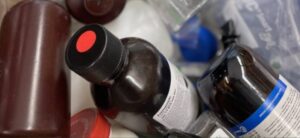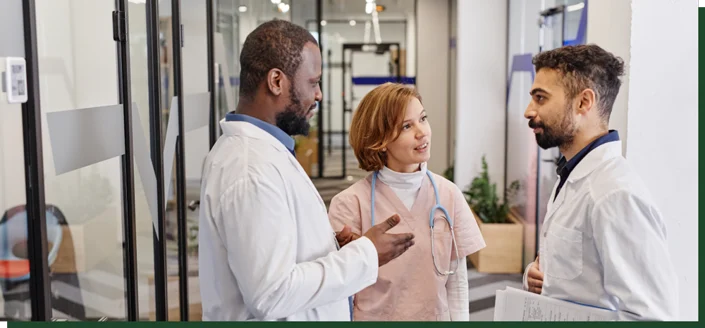First off all, let’s talk about why this even needs to be a thing. Pharmaceutical waste isn’t just your everyday trash—it’s stuff like expired meds, unused prescriptions, or even chemotherapy drugs that can do some serious harm if they’re not handled right. Think about it: flushing pills down the toilet or tossing them in the bin might seem like no big deal, but it can mess with the environment, get into the wrong hands, or even land you in hot water with regulators. That’s where safe disposal comes in, and trust me, it’s way easier than you might think when you’ve got the right know-how.
Step 1: Know What You’re Dealing With

Alright, so the first step to disposing of pharmaceutical waste safely is figuring out what kind it is. Not all pharma waste is the same, and that’s key. You’ve got stuff like RCRA hazardous waste (think toxic or flammable drugs), non-hazardous waste (like some over-the-counter meds), and even DEA-controlled substances (yep, the heavy-duty prescription stuff). Oh, and don’t forget chemotherapy waste—that’s its own beast. Knowing what you’ve got on your hands is huge because each type has its own rules. For example, hazardous waste has strict EPA guidelines, while controlled substances need DEA-approved handling. No guesswork here—just take a sec to sort it out.
Step 2: Don’t DIY It—Get the Pros Involved
Now, I get it—sometimes we all want to take charge and handle things ourselves. But with pharmaceutical waste? You’re better off calling in the experts. Companies like Triumvirate Environmental (yep, the folks from that URL) are pros at this. They don’t just swoop in and grab your waste—they manage the whole process, from picking it up at your site to making sure it’s destroyed properly. Why’s that awesome? Because it keeps you compliant with all those federal and state regs, saves you from hefty fines, and honestly, takes the stress off your plate. Plus, their trained teams know exactly how to handle everything, so you don’t have to worry about a thing.
Step 3: Collection and Segregation Made Simple
Here’s where it gets practical. Once you’ve got your pros lined up, the next step is collecting and sorting your pharmaceutical waste. This isn’t about dumping it all in one big pile—oh no. You’ve got to separate it based on those categories we talked about. Hazardous waste goes one way, non-hazardous another, and controlled substances get their own special treatment. The cool part? Experts like Triumvirate’s team handle this for you—they show up, sort it, and label it right on-site. It’s like having a waste fairy godmother who makes sure everything’s in its proper place before it heads out the door.
Step 4: Packaging and Labeling Like a Boss
Okay, so your waste is sorted—now what? It’s time to pack it up and slap some labels on it. This isn’t just about tossing stuff in a box—there’s a method to it. Pharmaceutical waste needs to be packaged in a way that’s safe for transport (think sturdy containers that won’t leak) and labeled clearly so everyone knows what’s inside. This step’s a big deal because it keeps the folks handling it safe and ensures it gets to the right disposal spot. The pros take care of this too, so you don’t have to stress about whether you got the label font size right or whatever.
Step 5: Transport and Final Disposal
Now we’re at the fun part—getting rid of it! Once your pharmaceutical waste is packed and labeled, it’s off to its final destination. This isn’t a road trip you’re driving yourself—the experts handle the transport with all the right permits and paperwork (manifests, anyone?). Then, depending on the waste type, it’s either incinerated, treated, or destroyed in a way that meets all the regs. For instance, DEA-controlled substances get extra-special attention to make sure they’re gone for good. The best part? You get documentation showing it’s all done legit, so you’re covered if anyone comes asking.
Bonus Tips for Staying Ahead
Want to level up your pharmaceutical waste game? Here’s a couple of extras to keep in mind. First, work with a team that’s DEA-approved if you’re dealing with controlled substances—saves you a ton of headaches. Second, don’t sleep on compliance. The EPA and state rules can be a maze, but pros can help you navigate them so you’re not accidentally flushing something you shouldn’t. And finally, think about cost—safe disposal doesn’t have to break the bank if you’ve got a solid plan with the right partner.
Why It’s Worth the Effort?
Look, I know this might sound like a lot at first, but here’s the deal: disposing of pharmaceutical waste safely isn’t just about following rules—it’s about doing the right thing. You’re protecting your community from drug misuse, keeping the environment clean, and honestly, saving yourself from a world of trouble down the line. Plus, with experts handling it, it’s way less complicated than it sounds. You just point them at the problem, and they take it from there.
Conclusion
So, there you have it—your go-to guide for disposing of pharmaceutical waste safely! From sorting it out to handing it off to the pros, you’re now armed with everything you need to tackle this like a champ. Whether you’re a hospital, a pharma manufacturer, or just someone with a pile of old meds, the key is to keep it safe, compliant, and stress-free. Got questions or need a hand? Companies like Triumvirate are just a call away, ready to make it all happen. Now go forth and conquer that waste—you’ve totally got this!

